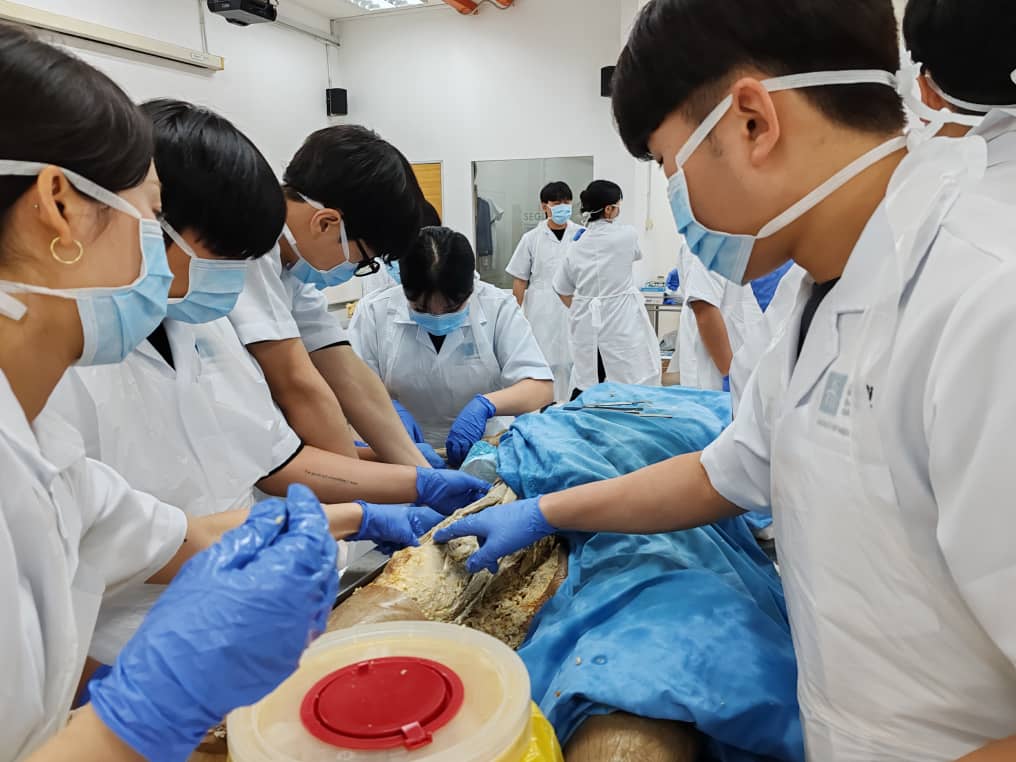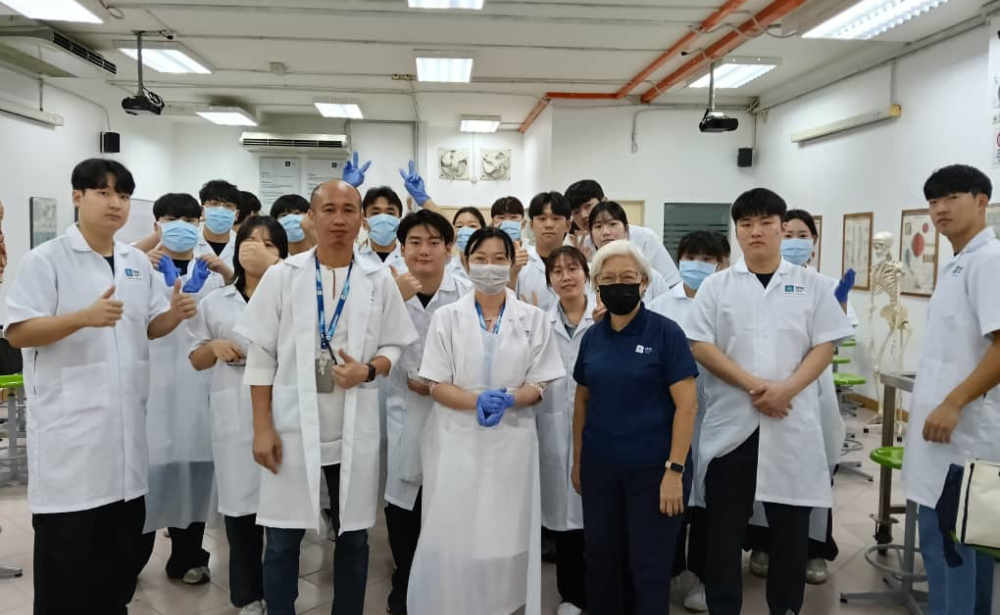In a groundbreaking collaboration, SEGi University’s Faculty of Medicine recently hosted a group of 25 physiotherapy students from Kyungbuk College, South Korea, for a Basic Cadaveric Dissection programme. This unique initiative provided the students with an invaluable opportunity to deepen their understanding of human anatomy through hands-on experience with cadaveric dissection.
Under the expert guidance of anatomy lecturer Professor Thida and lab technician Mr. Razif, the students embarked on a journey of anatomical exploration. The programme focused on identifying key muscles, nerves, and blood vessels, offering a comprehensive insight into the intricacies of the human body.
For many of the South Korean students, this was their first encounter with cadaveric dissection, a practice not typically included in physiotherapy curricula. The experience proved to be both enlightening and inspiring, broadening their perspectives on the human body and its remarkable capabilities.

“It’s fun to explore and experience new things like this in life,” shared Liew Kah Heng, a SEGi University Physiotherapy student who participated in the programme. “It broadens my horizons and gives me a new appreciation for the human body – how intricately and wonderfully we’re made.”
This sentiment was echoed by SEGi University Physiotherapy student Law Guo Yuan, who enthused, “I learned so much! Thank you, Professor!”
The collaboration between SEGi University and Kyungbuk College underscores the importance of international partnerships in fostering academic exchange and enriching educational experiences. By providing students with access to unique learning opportunities, such as cadaveric dissection, these institutions are empowering future healthcare professionals with the knowledge and skills necessary to excel in their fields.
The Basic Cadaveric Dissection programme was not only a testament to the commitment of both institutions to academic excellence but also a celebration of cross-cultural collaboration. It provided a platform for students from diverse backgrounds to come together, share their knowledge, and learn from one another.
SEGi University continues to be at the forefront of innovative education, providing students with unparalleled opportunities to grow and develop as healthcare professionals. The success of the Basic Cadaveric Dissection programme is a testament to the university’s dedication to providing students with the best possible learning experiences.
This initiative is in line with the United Nation’s Sustainable Development Goals, specifically:
- SDG 1: No Poverty
- SDG 3: Good Health and Well-being
- SDG 4: Quality Education
- SDG 10: Reduced Inequalities

